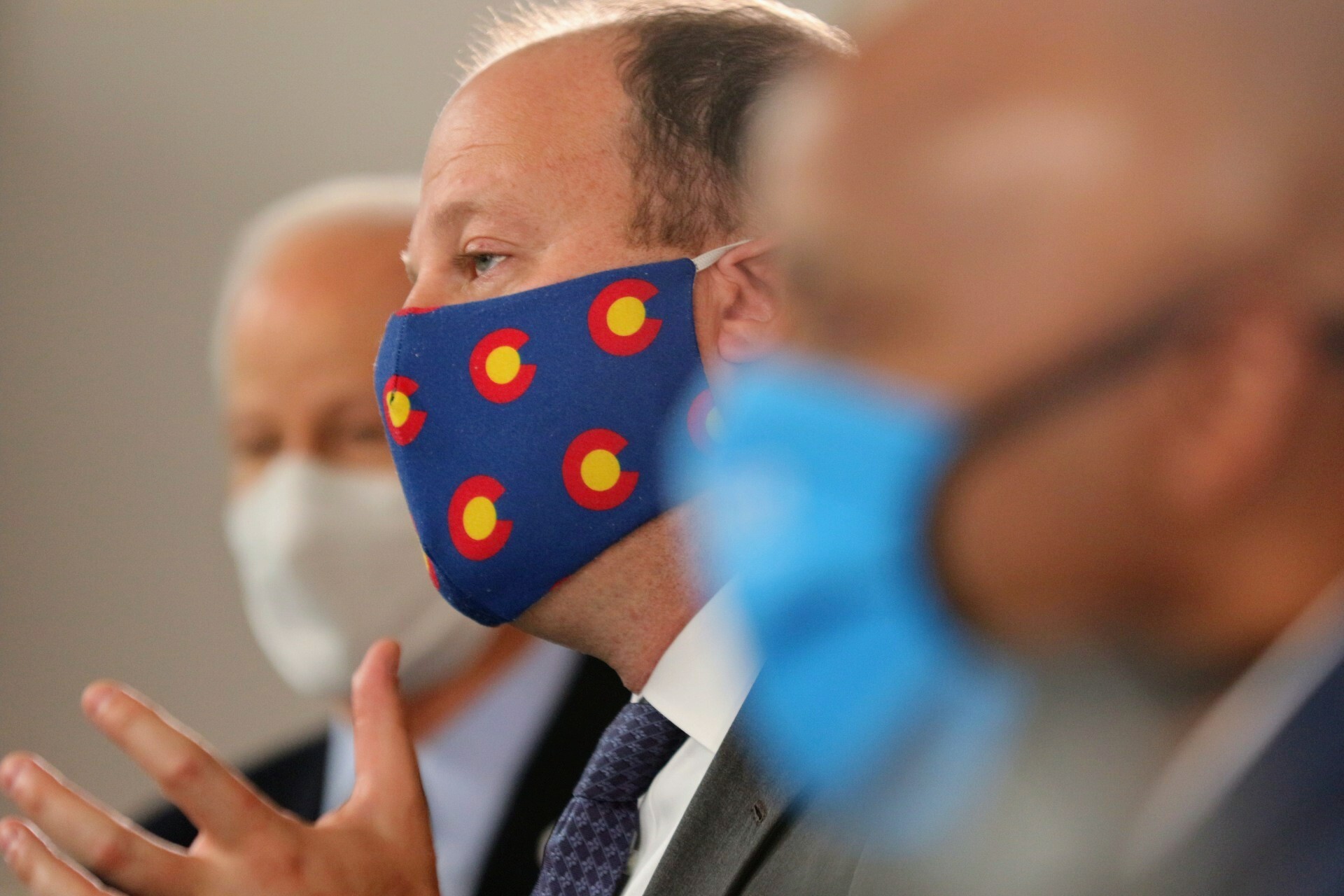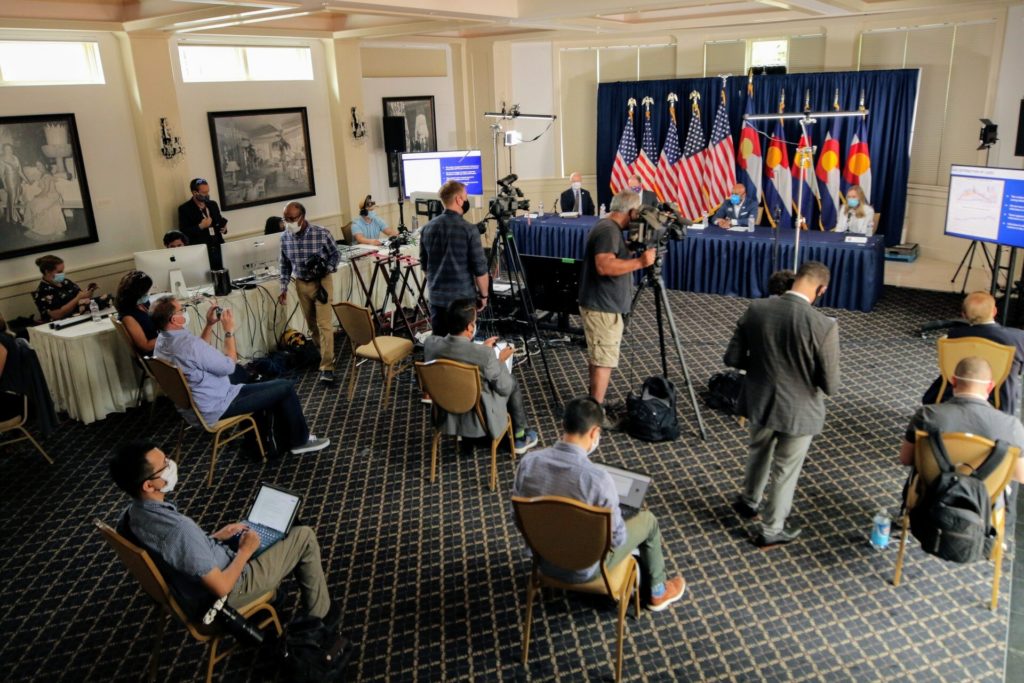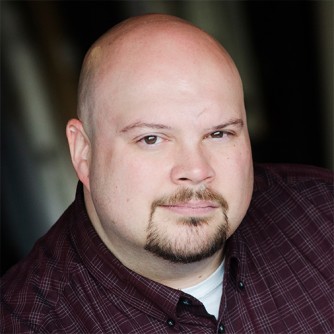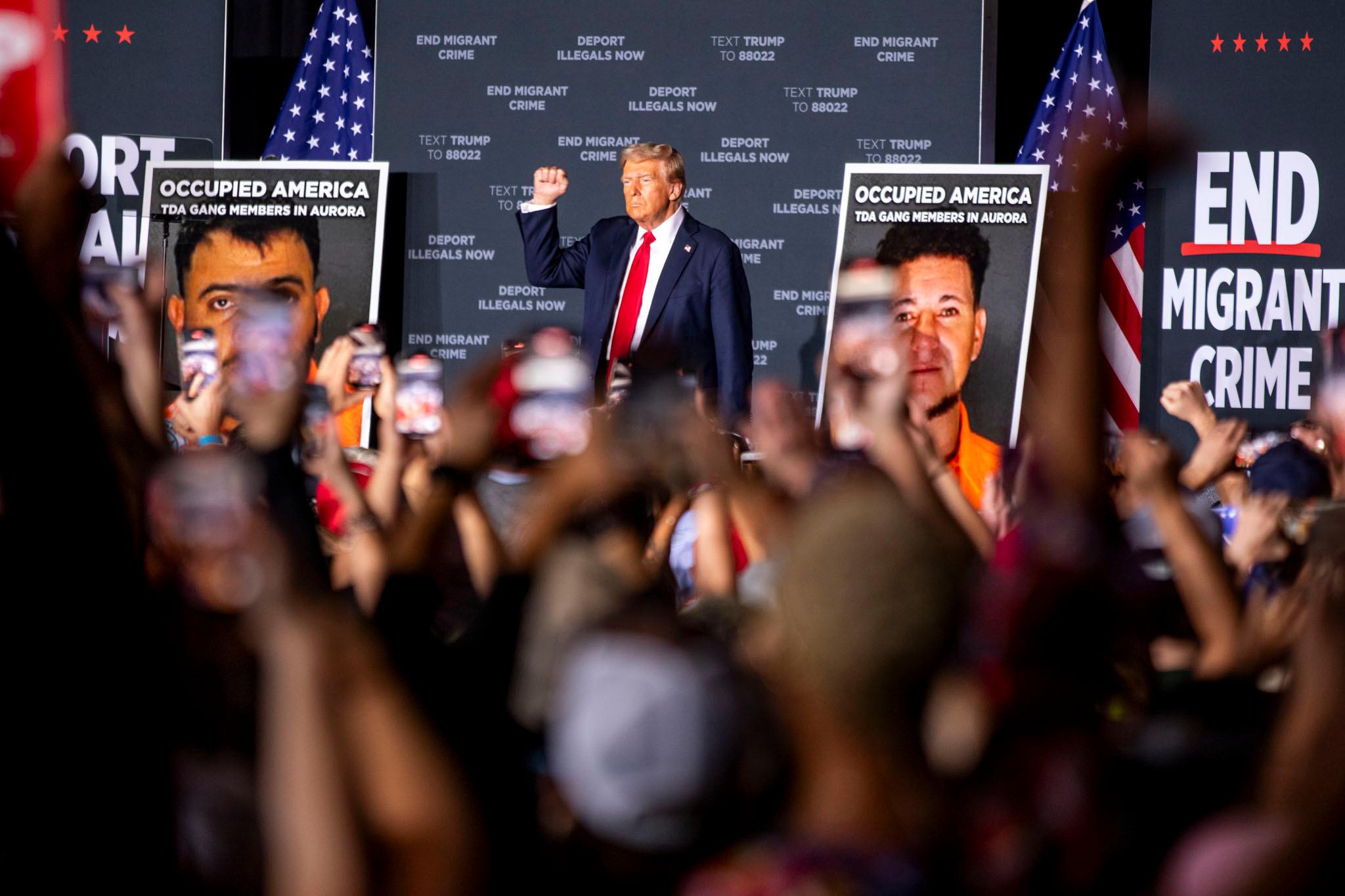
Updated 10:25 a.m., July 17th
After pleading, prodding, cajoling, using both friendly and harsh language, and appealing to the better civic sensibilities of Coloradans everywhere, Gov. Jared Polis has finally done what he’s been resistant to do.
The governor has issued a statewide face mask order.
“Today, I'm signing an executive order that's effective at midnight tonight that requires that every Coloradan, [older than the age of 10], wear a mask or face covering whenever they're in public,” Polis said in a Thursday briefing on the pandemic.
The mayors of the state's two larger cities, Denver's Michael Hancock and Aurora's Mike Coffman, were on hand in support of the statewide order. In addition to the mask order, the governor announced a two-week pause on issuing any new public health order variances to counties in the state.
“I'm hoping this is a wakeup call,” Polis said.
Unlike other nearby states, like Oklahoma, Kansas or Idaho, Colorado hasn’t seen explosive growth in new cases of the coronavirus — but there has been a “slow, steady rise” as Polis said earlier this week. The upward trend began in the middle of June and persisted into July. As of July 14, the three-day average positivity rate sat at 4.72 percent, significantly up from the 2.34 percent threshold the state saw in June.
Some counties are now seeing spikes in cases.
State epidemiologist Rachel Herlihy opened the governor's briefing with the latest numbers and data the state is tracking. The breakdown in social distancing and face coverings has led to what officials have called an alarming change. Based on extrapolations of current trends, Polis said, “the state would exceed its ICU capacity in September. So that's the bad news. The good news is there is time.”
The governor has often batted aside questions about issuing a statewide order for face coverings at his media briefings. He told CPR’s Colorado Matters that he didn’t think there were “people waiting to say ‘I’m not going to wear a mask until Jared Polis says I have to.’” From April, when the governor first called for a “strong mask culture” in Colorado to the weeks after some restrictions were lifted so the state could reopen, Polis has been consistent — and forceful — on why Coloradans should wear masks.
Even as the debate turned political and consumed the nation, growing consensus continues to support that a face covering in public will help curb the spread of COVID-19. An NPR report on a model from the University of Washington’s Institute for Health Metrics and Evaluation noted that masks could prevent thousands of deaths in the country before October.
“You know, wearing a mask is not a political statement,” Polis pointed out. “I don't know how in anybody's mind it became a game of political football. It's simple. It's common sense and it's data. The virus doesn't care what political party you are in. The virus doesn't care what belief system you have. The virus doesn't care what your ideology is. The virus is the virus and it is a threat to every single one of us.”

In the lead-up to the new statewide order, Coloradans faced a patchwork of rules. Reporting by CPR found that 11 counties and 24 cities had an order that spelled out requirements for masks. In some places, the requirements have been a point of contention: The Tri-County Health Department, which covered Arapahoe, Douglas and Adams counties, issued their own mandate that gave local governments the option to opt-out. While a few cities did just that, commissioners in DougCo disagreed with Tri-County’s move and announced they would leave the public health cooperative all together.
“We question the enforceability and efficacy of the mask mandate order, believing that trusting our citizens and business community to continue doing what they do, without a mandate, is the best approach,” Commissioner Lora Thomas said in a statement on July 9.
Up until now, Polis had stuck with the trusting citizens and business approach, as well as leaving it to local elected officials to decide. The data is what changed his mind.
“The two areas that convinced me that this would work is looking at the impact that mask ordinances have had, increasing mask-wearing 15 percent over areas that have not had those ordinances. It's not so much because of the enforcement of those ordinances. They're not widely enforced.”
Instead, it was the clarity of the message, the governor said, that led to increased mask usage and a reduction in the viral spread.
Even before Polis took to the podium, the Colorado Hospital Association released a statement in support of a statewide mandate. The association’s vice president of clinical affairs, Darlene Tad-y, said the CHA was “grateful to Coloradans for everything they have already done to slow the spread of this dangerous virus, and we know that a mask mandate will make a positive difference.”









